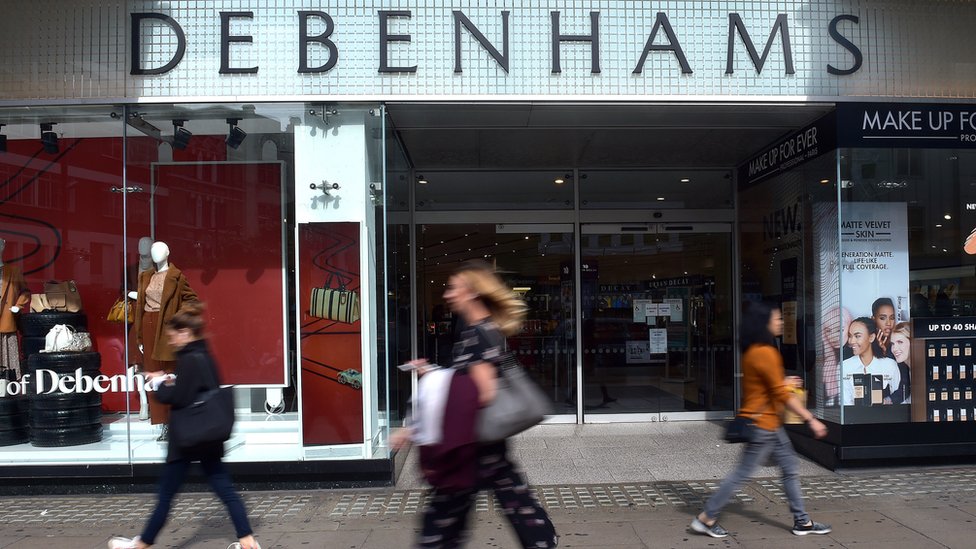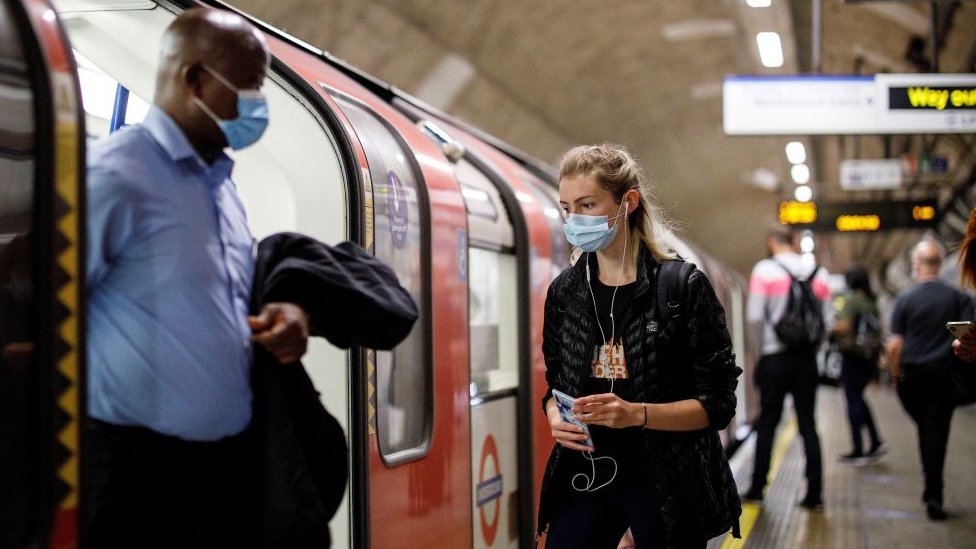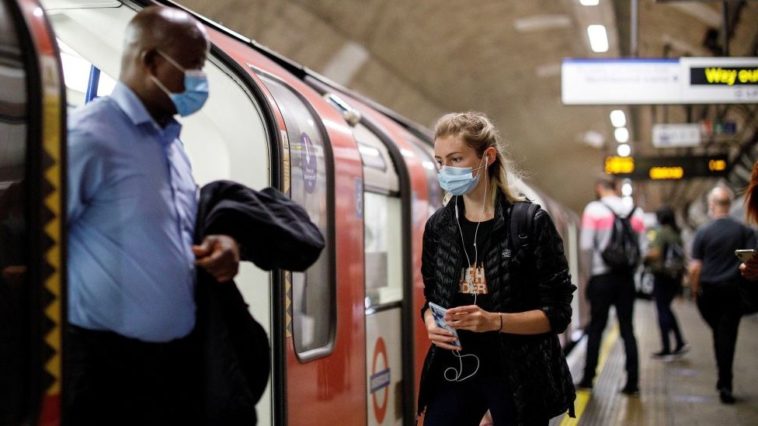Spent less, saved more: How we used our money this year

Getty Images
People spent less and saved more in 2020 as the pandemic led to shops, pubs and attractions being closed down.
Consumer spending was down 7.1%, says Barclaycard, which tracks almost half of all credit and debit card spending.
However spending on essential items climbed 4.1%, while independent businesses benefited as many more of us shopped locally.
Meanwhile Brits working from home saved an average £110 a week, according to a separate survey from Aldermore Bank.
“2020 has accelerated many trends,” said Raheel Ahmed, head of consumer products at Barclaycard.
“E-commerce has seen huge growth, working from home has meant many are shopping more locally and experiences within the home, such as virtual work-outs have become the norm.”
Online grocery shopping surged 70.3% over the year and looks set to have become the norm for many.
The amount we spent on fuel fell by more than a fifth – 20.3% – as we made far fewer trips, and prices fell at the petrol pump.
We also spent 15.6% less on clothing, presumably because many worked from home and there were no exciting events to go to that needed new outfits.
‘Fashion for independents’

The Barclaycard data showed that we spent an extra 28.6% at independent food and drink shops, such as off-licences, butchers and bakeries, compared with a year earlier.
It could be another trend that’s here to stay as the card company’s consumer confidence research showed that 57% of Brits wanted to increase their support of nearby businesses as a result of lockdown restrictions.
Joh Rindom, who runs That Thing, an independent fashion, homeware and accessories shop, said perhaps because people have spent more time at home, perhaps because they’ve focused on what is important to them, this year there has been a “fashion for independents”, she thinks.
Support for florists bloomed during the year with purchases up 22.7% while spending on takeaways online surged 49.1%.

But department stores were hard hit by the change in our spending habits, with spending down 17.2%, while clothing retailers experienced a 15.6% slump, leading to the financial problems at the likes of Debenhams and the Topshop owner, Arcadia.
Saving up
Brits’ saving habits have been boosted by the change in lifestyle during the lockdown and pandemic changes.
According to Aldermore Bank, weekly savings include £29 from not commuting, £20 on not spending as much on breakfasts and lunches, £22 on not socialising with work colleagues, £18 by avoiding takeaway coffees, and £22 on not going out on weekdays after work.
“The saving habits adopted due to the Covid-19 pandemic are likely to continue beyond this period and turn into better long-term spending routines,” said Ewan Edwards, director of savings at Aldermore.
“One positive to take from 2020 is it has given some people the opportunity to reflect on how to improve their personal finances.”

Research by Moneysupermarket suggested that two-thirds of Brits saved an average of £586 per month in 2020 – equivalent to £7,032 over the course of the year.
Londoners saved the most at £1,286 per month, followed by Yorkshire & the Humber who saved £690 and the East Midlands who saved £619. The Welsh saved the least at £302 per month.
“Some are saving more than ever as a result of no commuting fees, reduced childcare costs and far less going out for meals or day trips,” said Sally Francis-Miles money spokesperson at Moneysupermarket.
“This is especially evident in London where travel and childcare costs are often far higher for things such as childcare and travel.”
‘Hard-hit’
But many have been hit hard and been unable to get into the savings habit in 2020.
“Money worries are a very real preoccupation for millions across the country,” pointed out Ms Francis-Miles.
“Thousands have been made redundant or had their hours cut, they may be facing a struggle to cover the basics such as household bills and mortgage or rent payments.”
Published at Thu, 31 Dec 2020 12:56:51 +0000





Comments
Loading…